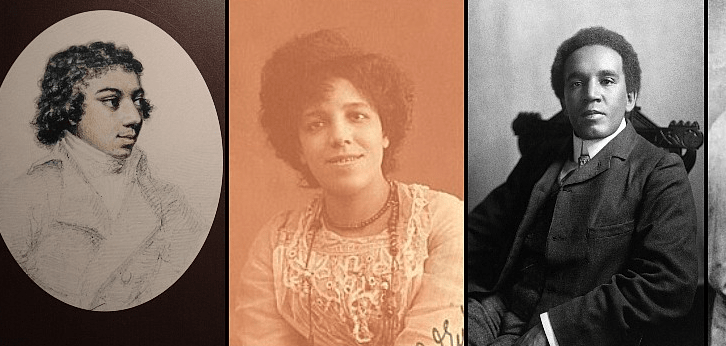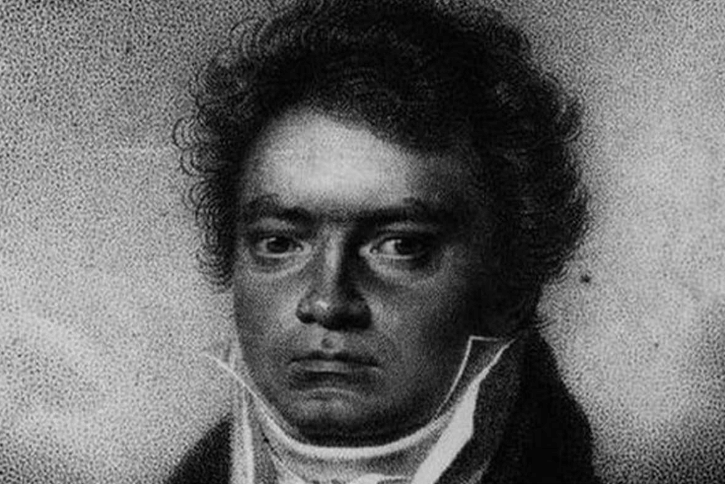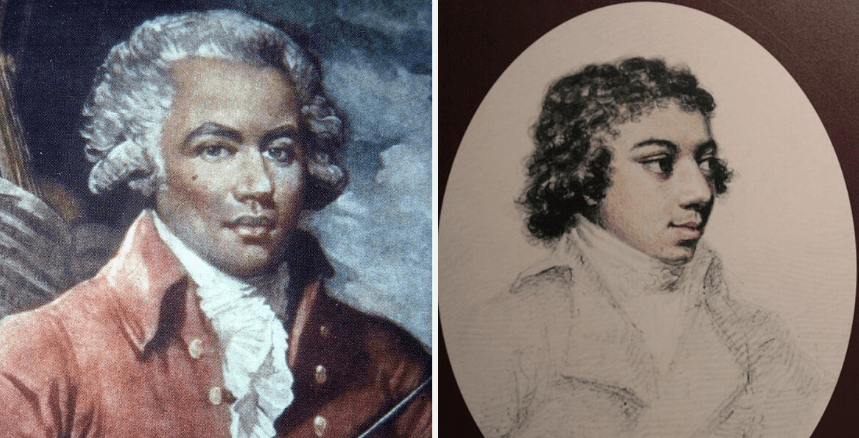Last week, an old query was circulating on Twitter: Was the great German musician Ludwig van Beethoven a black man? In a nutshell, probably not. Many scholars have disproved the notion over the years. Still, researchers say the resurgent subject provides a chance to emphasize the ongoing debate over inequality and institutional racism in classical music and its history.
History:
Samuel Coleridge-Taylor was a well-known English composer and conductor of mixed ethnicity. In 1907, he published what is generally considered the first documentation of Beethoven’s race. During the early to mid-twentieth century, Black researchers, including notable historian Dominique-Rene de Lerma, a scholar on the subject of classical composers of colour, were striving to recover their past. Malcolm X and Stokely Carmichael both claimed Beethoven as one of their own during the Civil Rights Movement of the 1960s.
Joel Augustus Rogers, a Jamaican-American novelist, and journalist spent much of his career writing about African history and the African diaspora, notably in America. His writing frequently questioned widely held beliefs about race and African inferiority at the time. Between 1941 and 1944, he released Sex and Race, a three-volume work. In it, he stated his belief that Beethoven was a black man. The evidence he cites is still a hot topic in today’s social media debate.
Beethoven biography
Ludwig van Beethoven was a pianist and composer from Germany. Beethoven is regarded as the most admired composer in Western music history; his works are among the most often performed in the classical music canon, spanning the transition from the classical to the romantic periods. His career has usually been classified into three periods: early, middle, and late. The “early” period, when he honed his skill, is generally thought to have lasted until 1802. From 1802 to 1812, his “middle” phase exhibited a distinct evolution from Joseph Haydn’s and Wolfgang Amadeus Mozart’s “classical” styles and is sometimes referred to as “heroic.” During this moment, he became deaf.
He continued to innovate in musical form and expression throughout his “late” phase, from 1812 till his death in 1827. Beethoven’s musical skill was evident at a young age, and his father, Johann van Beethoven educated him sternly and extensively at first. Beethoven was later tutored by Christian Gottlob Neefe, a composer and conductor, under whose guidance he published his first piece, a set of piano variations, in 1783. He found solace from his tensed home life with Helene von Breuning’s family, whose children he adored, befriended, and taught piano to. At the age of 21, he travelled to Vienna, which he would later call home, to study composition with Haydn. Beethoven’s reputation as a brilliant pianist grew. He was quickly court by Karl Alois, Prince Lichnowsky for arrangements, resulting in his three Opus 1 piano trios (his earliest works to get an opus number) in 1795.
His first significant orchestral piece was published in 1800, while his first set of string quartets was published in 1801. His hearing began to fail around this time, yet he continued to conduct, premiering his Third and Fifth Symphonies in 1804 and 1808.
how did Beethoven die
Only his friend Anselm and a “Frau van Beethoven” (perhaps his old nemesis Johanna van Beethoven) were present when Beethoven died on March 26, 1827, at 56. There was lightning and a roar of thunder at 5 p.m., according to Hüttenbrenner: “Beethoven opened his eyes, lifted his right hand, and looked up for many seconds with his fist clenched… not another breath, not a heartbeat more.”
The mantra” was Beethoven black.”
In 1907, exactly 80 years after Beethoven’s death, British composer Samuel Coleridge-Taylor speculate that Beethoven was a black man. Coleridge-Taylor, who was of mixed race, with a white English mother and a Sierra Leonean father, couldn’t help but notice striking similarities between his facial features and Beethoven’s. Coleridge-Taylor, who had lately returned from the segregated United States, projected his experiences onto the German composer. “If the greatest of all musicians were alive today, obtaining hotel accommodations in some American towns would be impossible.” His words would turn out to be prescient.
The slogan “Beethoven was black” became an element of the civil rights movement in the 1960s. Coleridge-Taylor decreasing for 50 years and was almost forgotten at the time. Still, the baton transferred as crusader Stokely Carmichael rails against the deep root belief that white European culture was fundamentally superior to black culture. “They don’t tell us that Beethoven was as black as you and me,” he told a mostly black crowd in Seattle. Malcolm X had expressed a similar sentiment when he informed an interviewer that Beethoven’s father was “one of the blackamoors that sold themselves out in Europe as professional musicians.”
“Is Beethoven black” chanted in San Francisco:
“Beethoven was black” which become a cry on a San Francisco soul music radio station, in 1969. When Rolling Stone magazine publish a story entitled, “Beethoven was black and proud!” it entered the public awareness. Following a heat conversation about music and race at Stanford University in California in 1988. Where two white students damage a poster of Beethoven, giving him crude stereotypical African American characteristics. This act was cover in the press as an act of bigotry.
Point of fact:
Europe was not the bastion of Caucasian ethnic purity as many have portrayed it in recent years. From the mid-fifteenth century onwards, the Mediterranean was a hotbed of cross-cultural exchange. Migration and Black Africans were a common sight in northern European cities. Flanders was once under the control of Spain, which conducted regular trade with the Berbers of North Africa. “However, this theory is not based on publicly available genealogical investigations of Beethoven’s past. “Rather, it is based on the belief that one of Beethoven’s ancestors had an unmarried child”. The Beethoven Center at San José State University explains. Beethoven’s nationality was German.
Campaign of “Beethoven was African”:
Beethoven Was African, a band with the unsubtle moniker, produced an album in 2015. To establish that the Master’s music showed his ethnicity. According to this notion, the composer’s usage of polyrhythms hints at his West African ancestry. On the other hand, that idea argues that not only musical aptitude is transmitting, but also musical genre. The rare possibility that Beethoven was expose to traditional West African music in some way. Nicholas Rinehart is unequivocal in his belief that Beethoven was not Black. The history of Western music is ripe for rewriting – in his 2013 paper Black Beethoven and the Racial Politics of Music History. “This desperation, this impulse to paint Beethoven black in the face of all historical evidence is, I believe, a powerful signal that the moment has finally arrived to make a single… and comprehensive effort [to alter] the classical canon.”
Cultural dominance
The itchiness over Beethoven’s cultural supremacy would continue to erupt in hives, and in 2007. Nadine Gordimer published Beethoven Was One-Sixteenth Black, a collection of short stories. But, until this year, when, against the backdrop of Covid-19 becoming inexorably. They tied with the Black Lives Matter movement, echoes of Carmichael and X. Echoes can be hear from unexpected places, the subject of the race mainly remained dormant. “As 2019 winds down, here’s a short thread on one of my huge resolutions for 2020. Spending an entire year avoiding Beethoven,” William Gibbons. A musicologist at the College of Fine Arts in Forth Worth, Texas, had already dropped a bomb on classical music Twitter.
Then came the epidemic, which swept all of Beethoven’s celebrations aside. With Europe on the verge of shutdown, composer Charlotte Seiter raised a sensation. When she spoke of Beethoven’s weariness and his “toxic cult of brilliance” and “thinking in categories of supremacy”. While arguing at the Beethoven-Haus in Bonn. Beethoven’s ethnic background showed that he was not black.
Conclusion:
Many groups are striving to correct the imbalance: Nwanoku formed the Chineke! According to the organization’s website, the foundation provides better possibilities for black composers in the United Kingdom and Europe. In the United States, the Sphinx Organization, located in Detroit, encourages young black and Latinx classical artists. The Sphinx Virtuosi chamber orchestra recorded two parts of black British composer. Philip Herbert’s “Elegy: In Memoriam,” a composition written in memory of British teenager Stephen Lawrence. A white gang killed him in 1993.
In the video, the group says, “We perform this piece in commemoration of Stephen Lawrence, George Floyd, Breonna Taylor, Ahmad Arbery. Many others who take from this world unfairly.” Thurman believes that black musicians, both past and contemporary. Deserve the same respect as Beethoven. “Rather than discussing this topic, let us focus our energy and resources on promoting. The treasured wealth of black composers that we already have,” Thurman adds. “Because kids already don’t receive enough time and attention.” But now a days you need to know more about the Kim Jong Un .





